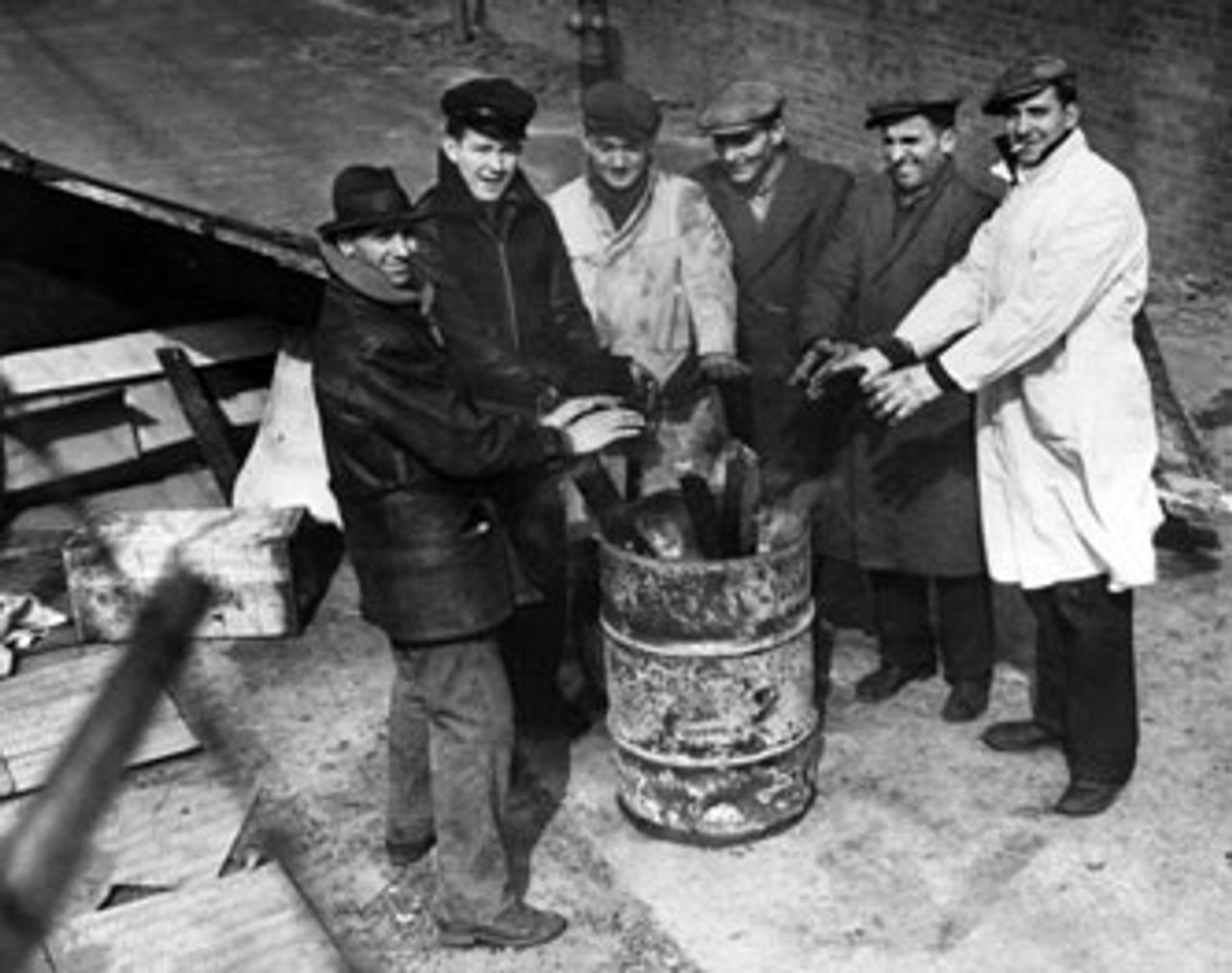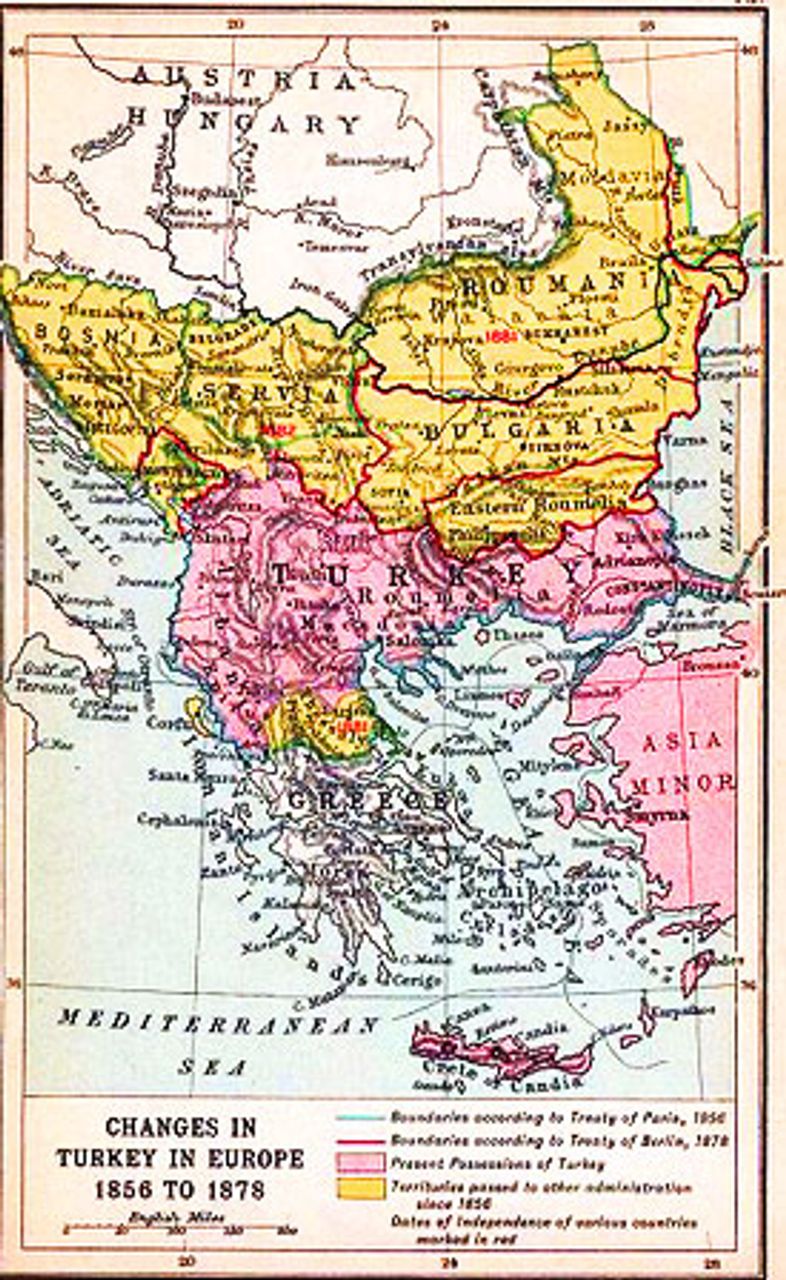This Week in History provides brief synopses of important historical events whose anniversaries fall this week.
25 Years Ago | 50 Years Ago | 75 Years Ago | 100 Years Ago
25 years ago: Brazil mobilizes army against striking workers
 Jose Sarney
Jose SarneyBeginning on March 10, 1987 and escalating throughout the week, Brazilian President Jose Sarney sent troops and tanks into the country’s ports and refineries to head off a threatened occupation by striking refinery workers. By that time the walkout of dockworkers had been going on for two weeks, involving some 40,000 workers in defiance of the government’s declaration that the strike was illegal. Just three weeks earlier Sarney rocked the financial world with an announced moratorium on interest payments to international banks, warning that IMF-imposed austerity was raising the specter of social revolution in Brazil.
Soldiers backed by tanks took control of 10 refineries operated by the state-owned Petrobras company to prevent the threatened action over wages. Navy tugs were used to bring oil tankers into the docks and marines with automatic rifles patrolled the ports. Some ships’ crew quit en masse to protest the navy strikebreaking.
The unions were demanding a 71 percent pay increase, while management was offering only 38 percent. Both figures were well under Brazil’s rate of inflation. The threat of factory occupations by the 15,000 refinery workers would have cut off fuel deliveries to industry, government, and the military. Petrobras warned that if this took place fuel for transportation would run out within 15 days.
At the same time, hundreds of thousands of farmers staged demonstrations and protest throughout Brazil to protest the 500 percent IMF-dictated interest rates that prevented them from borrowing the money needed to plant their crops. At least 14 interstate highways were blocked and many banks were prevented from opening due to their doorways being blocked with farmers’ tractors.
The calling out of troops against the workers exposed the false veneer of democracy under Sarney. The real power remained the military, whose two-decade-long rule had formally ended only two years earlier.
50 years ago: NSC proposes terrorist attacks in US to justify war with Cuba
 L.L. Lemnitzer
L.L. Lemnitzer On March 13, 1962, Chairman of the Joint Chiefs of Staff L.L. Lemnitzer submitted a memorandum to Secretary of Defense Robert McNamara proposing terrorist attacks be staged on US soil or overseas US targets “which would provide justification for US military intervention in Cuba.”
Declassified documents, released in 2001, reveal that Operation Northwoods, as it was called, was “based on the premise that US military intervention will result from a period of heightened US-Cuban tensions which place the United States in the position of suffering justifiable grievances.” The memos note that “World opinion, and the United Nations forum should be favorably affected by developing the international image of the Cuban government as rash and irresponsible.”
“We could develop a Communist Cuban terror campaign in the Miami area, in other Florida cities and even in Washington. The terror campaign could be pointed at refugees seeking haven in the United States,” the documents propose. “We could sink a boatload of Cubans en route to Florida (real or simulated).” In Miami a casus belli could be created by “[e]xploding a few plastic bombs in carefully chosen spots.”
Chillingly, the documents also propose “Hijacking attempts against civil air and surface craft… It is possible to create an incident which will demonstrate convincingly that a Cuban aircraft has attacked and shot down a chartered civil airliner en route from the United States … The passengers could be a group of college students off on a holiday…”
The document also proposed a series of “false flag” attacks on US soldiers at the American base in Guantanamo Bay, including a “‘Remember the Maine’ incident… We could blow up a US ship in Guantanamo Bay and blame Cuba,” the Joint Chiefs of Staff proposed.
McNamara and Kennedy vetoed the proposal and soon reassigned Joint Chiefs of Staff chairman Lemnitzer. While Kennedy continued illegal operations against Cuba under Operation Mongoose—including recruiting organized crime figures for assassination attempts against Castro—the determination had been made to make a show of US force in Vietnam instead.
75 years ago: Chrysler sit-down pushes Detroit to the brink
 Chrysler workers during sit-down occupation
Chrysler workers during sit-down occupationOn, March 15, 1937, Judge Campbell of federal circuit court in Detroit granted Chrysler an injunction against the UAW sit-down strikers occupying eight of the corporation’s Detroit factories. Pushing aside protests from the UAW, Campbell ruled that regardless of any infringements upon the National Labor Relations Act (NLRA) by Chrysler it was inconceivable that some $50,000,000 worth of the plaintiff’s private property be seized by employees, and ordered a police evacuation of all plants by 9:30 a.m. on March 17.
Chrysler workers in the plants prepared to defend themselves, taking up “clubs, wrenches, and missiles of all kinds,” the New York Times reported. Tens of thousands of workers then surrounded the plant and protect the workers inside. The sit-down in Detroit now approached the dimensions of a “city-wide general strike” as sit-downs gripped 30 industries, including the city’s hotels and department stores.
The strike had already led to the further closure of Chrysler manufacturing plants in Evansville and Newcastle, Indiana and Los Angeles, California, with the result that from a total workforce of 67,000, only 7,000 Chrysler employees were working.
100 years ago: Serbia and Bulgaria sign secret treaty
 Balkans
BalkansOn March 13, 1912, Serbia and Bulgaria signed a treaty initiating a military alliance between the two nations that had previously been at loggerheads over a series of territorial disputes. The move, encouraged by Russia, was part of a shift of geo-political relations in the Balkans region stemming from the decline of the Ottoman empire.
While it was ostensibly directed against the Austro-Hungarian empire, the treaty included a secret annex requiring Serbia and Bulgaria to come to each other’s aid in the event of a war with the Ottoman empire. It also included provisions for the division of Ottoman controlled Macedonia in the event of war, providing for the creation of a Bulgarian zone and a contested zone to be arbitrated by Russia.
The treaty was the first of a series of bilateral agreements that created the Balkan League, a loose alliance directed against the Ottoman empire. The constituents of the league, Bulgaria, Serbia, Montenegro, and Greece, had all established their independence from the Ottomans in the previous century, and were anxious to secure territory from the disintegrating empire. The formation of the league precipitated the first Balkan war, which began in October 1912.
Layers of the Serbian state and military were hostile to the treaty with Bulgaria on the grounds that it entailed too many territorial concessions. The alliance broke down over conflicts regarding the division of spoils from the first Ottoman war, precipitating the second Balkan war, which began when Bulgaria attacked Serbia and Greece in June 1913.
